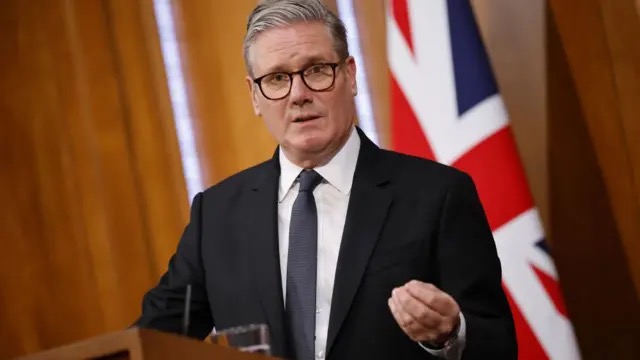On May 12, 2025, UK Prime Minister Keir Starmer unveiled a comprehensive immigration white paper aimed at significantly reducing net migration by the end of the current parliamentary term. This announcement marks a pivotal shift in the nation’s immigration policy, focusing on tightening regulations across various visa categories and emphasizing domestic workforce development.
Key Policy Changes
The white paper introduces several stringent measures designed to curtail immigration numbers:
- Skilled Worker Visa Threshold: The minimum salary requirement for skilled worker visas will be raised to align with graduate-level positions, making it more challenging for lower-paid roles to qualify.
- Social Care Visas: New overseas social care visa applications will be halted, aiming to reduce dependency on foreign labor in the care sector.
- Student Visas: Regulations for student visas will be tightened, including stricter criteria for dependents and post-study work rights.
- Settlement and Citizenship: The qualifying period for settlement will be doubled, and international workers will now have to wait a decade before gaining UK citizenship.
- English Language Requirements: New, more rigorous English language criteria will be imposed across various visa categories to ensure better integration.
- Family Immigration: Family immigration provisions will undergo an overhaul, including increased income thresholds and more stringent eligibility criteria.
These measures are projected to reduce annual immigration by approximately 100,000 individuals.
Government’s Rationale
Prime Minister Starmer emphasized that these reforms are rooted in Labour values, focusing on restoring control and fairness to the immigration system. He rejected the idea of fixed migration caps, instead advocating for policies that adapt to the country’s economic needs. The government aims to reduce reliance on low-wage foreign labor by investing in domestic skills and workforce development. Additionally, the white paper targets abuse in the asylum system and proposes reforms to deport foreign criminals more effectively, enhancing compliance through sponsor penalties.
Political and Sectoral Reactions
The announcement has elicited mixed reactions. While some praise the government’s commitment to reducing immigration, others express concern over potential labor shortages, particularly in the care sector. Critics argue that the abrupt changes could strain industries heavily reliant on foreign workers and question the feasibility of rapidly developing domestic skills to fill the gaps.
The UK’s new immigration strategy represents a significant policy shift, aiming to balance economic needs with public concerns over immigration levels. As the government moves forward with these reforms, it will need to address the challenges posed to various sectors and ensure that domestic workforce development keeps pace with the reduced influx of foreign labor.



















